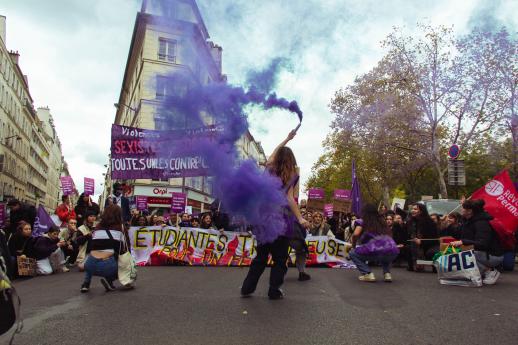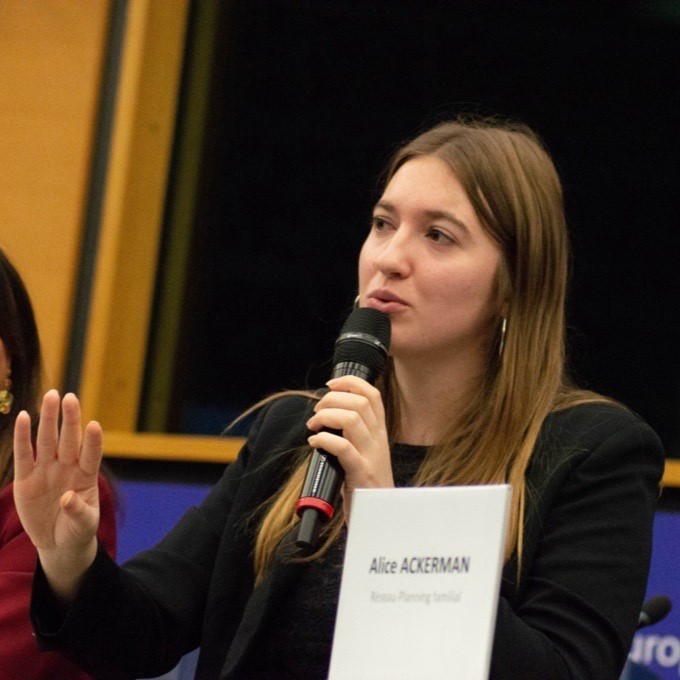For the past three months, the trial of the 51 men accused of raping Gisèle Pélicot has been making headlines in France and abroad. The trial has shocked public opinion with its horror. This trial is exceptional in its scale, but it is also and above all representative of rape culture and the societal debate on the legislation of consent. It raises an essential question: would your country have delivered justice for Gisèle Pélicot?
1. An Extraordinary Trial Highlighting Ordinary Rape Culture
This trial is exceptional in terms of the number of defendants and the long period over which the crimes took place.
Dominique Pélicot raped and organized the rape of his wife by one hundred men over the course of a decade. To do this, he drugged his wife without her knowledge with powerful sedatives and sleeping pills. This is known as “chemical submission”, or “drug-facilitated sexual assault”.
Dominique Pélicot posted the advert on a swingers' website and recruited the men by offering for them to rape his wife for free. The rapes were documented by Dominique Pélicot himself, who filmed them. When he was arrested, the police collected the videos and were able to identify 50 of the 100 men who appear on them.
This trial is unusual in the amount of evidence collected by the police. Feminist associations point out that in most cases of sexual violence, the evidence is thin. It is often two witnesses who confront each other. This case is therefore an exception, and presents the “ideal” situation for a conviction of all the accused.
But despite this overwhelming evidence, 35 of the 50 men accused have pleaded not guilty. These men deny the accusations: some say they thought Gisèle Pélicot was pretending to be asleep, others say they raped her under duress from Dominique Pélicot, others say they were drugged themselves and don't remember the rapes.
Only the videos of the rapes, shown during open court sessions (which is exceptional), show the full horror and dismantle the rapists' justifications. But that doesn't stop the lawyers of the men accused of the rapes, some of whom dare to accuse Gisèle Pélicot of being an ‘exhibitionist’, and others suggesting that Gisèle and Dominique had set up the rapes together. In the end, only Dominique Pélicot fully admitted to the crime, declaring at the trial: “I'm a rapist like all the men in the room”.
This trial reveals a fundamental debate in France on the legal and societal definition of rape. It raises a central question: Would your country give justice to Gisèle Pélicot? Is your national legislative framework sufficient to condemn rape committed through chemical submission?
when
country
France
region
European Network

The shame shifts sides
Aline Dessine2. Is French Law “Without No, It's Yes”?
French law defines rape as oral, vaginal or anal penetration committed by coercion, surprise, threat or violence. This legal framework does not include the notion of consent. To be punishable, rape must fall into one of these four categories. In the case of chemical submission, jurisprudence considers that this type of rape is committed by “surprise”.
Faced with the lawyers' attacks, described as “humiliating”, Gisèle Pélicot declared: “I feel as though I am being treated as the guilty party.”. Indeed, from an international perspective, French justice seems brutal when dealing with survivors of sexual violence. In sexual violence trials, those accused of crimes are presumed innocent. Consequently, it is up to the survivors to prove the absence of consent, and not up to those accused of rape to prove the presence of consent. It is up to the survivors to prove that penetration took place under coercion, surprise, threat or violence.

In France, it is up to the survivors to prove that penetration took place under coercion, surprise, threat or violence.
NanohanaIn concrete terms, if the accused person's lawyers succeed in demonstrating that the refusal of consent was not clear, that the penetration took place without duress, surprise, threat or characterized violence, this may result in an absence of conviction. Under French law, lack of consent to a sexual act alone does not constitute rape.
In the case of the trial of the 51 men accused of raping Gisèle Pélicot, the defendants are therefore trying to demonstrate that it was not obvious to them that there had been a refusal of consent. This is why some of them claim to have thought that Gisèle Pélicot was pretending to be asleep, in which case there would have been no refusal of consent. This defense is symbolized by the statement made by one of the defendants' lawyers to the media: “There is rape and rape and, without the intention to commit it, there is no rape”.
3. “There is rape and rape and, without intent to commit it, there is no rape”.
This statement triggered a wave of reaction from feminist movements, backed by public opinion. The sentence is indicative of a fundamental debate taking place in France over the definition of rape and the lack of conviction of those accused of rape. The trial is fueling widespread criticism in France of the legislative framework governing rape.
Feminist organizations are calling on the French government to broaden the legal definition of rape to include the notion of consent. Many survivors tell of how they were denied justice and the rapists were not convicted because the rape they denounced did not fall into one of the four categories of coercion, surprise, threat or violence.
French feminists are looking internationally, highlighting the laws developed by neighboring countries to condemn rape. In the wake of the #MeToo movement, many governments have changed their laws to ensure that the legal definition reflects the societal definition as closely as possible. It's important to remember and state clearly: it's society and its evolution that shape the law. The opposite is a sign of a sick society.
In 2018, Sweden amended its law to define that sexual intercourse must be voluntary. The government created a new offence to condemn “negligent rape”. The absence of no is no longer an element in the defense of those accused of rape. The absence of a “no” becomes an additional indication of conviction. In 2022, Spain passed a law dubbed “Only a yes and yes”, making explicit agreement a prerequisite for consensual sexual intercourse.
Following the example of these countries, will France demonstrate its ability to keep pace with the evolution of society, and to hear and to listen to survivors of sexual violence?

To governments everywhere: it is time to examine your legal frameworks on sexual violence with honesty and urgency
NanohanaThe trial's conclusion is set for December 20. As this case unfolds and captures the world’s attention, it serves as a powerful reminder to governments everywhere: it is time to examine your legal frameworks surrounding sexual violence with honesty and urgency. Are your laws comprehensive and reflective of the many forms that sexual violence can take? Are the voices of survivors listened to, and met with justice? It is not enough to have legislation on paper; the true measure of justice lies in how these laws are implemented and whether they protect and empower survivors.
To all the policymakers and leaders watching this trial, now is the time to ensure that justice systems are not only reactive but proactive. Do women in your country feel safe and confident when coming forward? Do they believe that they will be supported and that their cases will be treated with the seriousness they deserve? The world is watching, and more importantly, so are your citizens. This moment demands action and accountability, so that justice for survivors like Gisele becomes the standard, not the exception.








